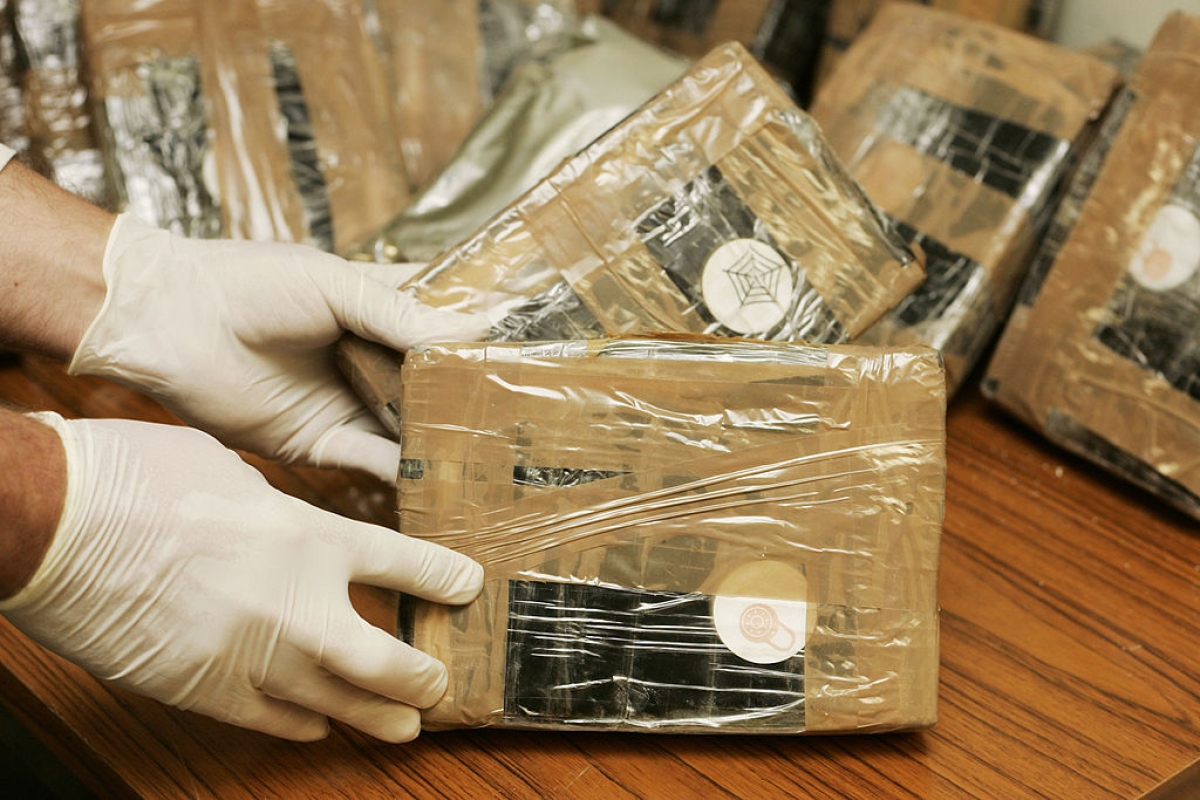A few days ago, Russian police seized a truck loaded with 200 thousand US dollars worth of drugs at a rural town near Damascus. The truck originated from Lebanon and could be traced back to a Hezbollah leader. News of this seizure went unnoticed in Lebanon and Syria.
In reality, drug dealing is one of Hezbollah’s primary sources of income and the group’s reliance on drug dealing has grown in recent years. This is mainly due to the fact that the group is attempting to ease its financial dependence on Tehran, which has been suffering from the various international sanctions placed on it.
The Special Operations Division of the US Drug Enforcement Agency (DEA), recently started investigating Hezbollah’s drug activities. According to their investigations, the group’s illicit drug operations have been funding its terror plots for the past 30 years. The group used to also deal in cocaine, and its primary supplier of the substance was the Colombian drug cartel Oficina de Envigado.
Hezbollah’s drug and money laundering operations started in the 1990s. Imad Mughniyeh launched said operations as a source of funding in addition to the money the group received from Iran. The operations have now expanded beyond Lebanese borders, as the group’s drug activities have reached both Americas, Europe, Australia and a number of Arab countries such as Jordan, Morroco and others. A few years ago, the American DEA led “Project Cassandra” which was meant to undercut Hezbollah funding from illicit drug trading. The project involved intelligence agencies from seven countries, among them were that of France, Belgium, Germany and Italy. The project managed to arrest a number of Hezbollah members who were involved in smuggling and dealing millions of dollars worth of drugs to fund the group’s militant operations. The group is also involved in drug trafficking in Mexico, and has a number of drug partners who are officials in Venezuala. The group is also involved in smuggling drugs from Colomubia into the US, West Africa, the Middle East and Europe.
In addition to drug trafficking and money laundering, Hezbollah has always carried out terrorist operations both within and beyond Lebanon. Kuwait was its first international victim. In1983 Hezbollah carried out a number of terrorist attacks with the Iraqi Dawa Party. This series of bombings targeted vital installations such as the Kuwait International Airport, a major oil refinery, and both the US and French embassies, respectively. Additionally, both groups also worked together to hijack a Kuwaiti commercial plane. In Kuwait, what became known as the “Abdali Cell”, a Kuwaiti terrorist cell supported by the Lebanese Hezbollah and Iran, was accumulating weapons in order to carry out security operations inside Kuwait, but the Kuwaiti security authorities arrested the cell members before they managed to carry out any operation. One also mustn’t forget the 1996 attack on Khobar, Saudi Arabia. Hezbollah trained the perpetrators of the attack, who smuggled weapons from Lebanon to Saudi Arabia and exploded a tank loaded with explosives at the Khobar housing complex. In 2015, Saudi Arabia managed to arrest Ahmed Ibrahim Al Mughassil a Saudi man who was wanted in connection to the 1996 attack.
In addition to drug trafficking, money laundering, and terrorist operations, Hezbollah also participates in military opeartions beyong Lebanese borders and it does so without consulting the Lebanese government. Hezbollah militias are involved in a multitude of conflicts around the Middle East. They are fighting in Syria alongside the Bashar Al Asssad regime, they have joined forces with the Houthis in Yemen and they are helping pro-Iranian Iraqi forces in policing Iraq.
Hezbollah is also accused of assasinating a number of politicians and officials in Lebanon, including late Prime Minister Rafik El Harriri. The International Criminal Court’s decision regarding the assasination is just around the corner.
After years of remaining the most powerful group in Lebanon, it now stands to become the only ruling power in the country. This especially true under the current government of President Michel Aoun and Prime Minister Hassan Diab. Now President Aoun is asking the international community for monetary aid, as if the current Hezbollah controlled government will use the funds to rebuild Lebanon. The international community will no longer fall for these tricks, and the people of Lebanon will no longer tolerate a government which has not been granted the legitimacy to rule.
Sign up for our Weekly Newsletter
Get the best of Majalla, straight to your inbox.







